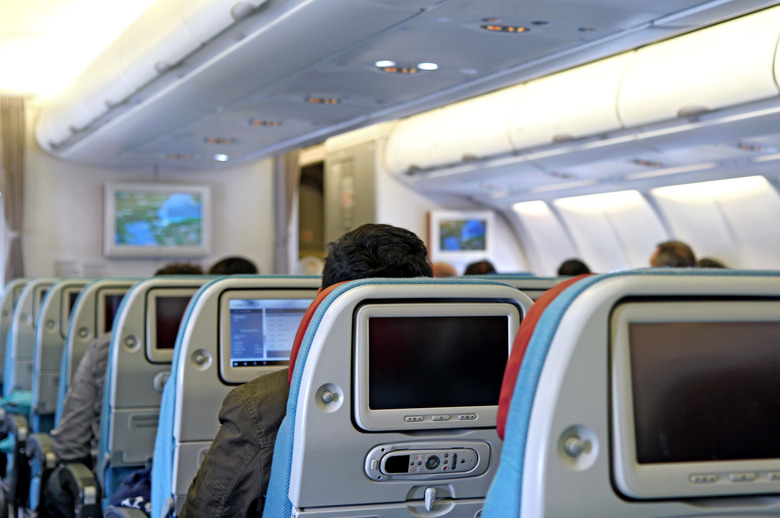Why Does Flying Make Me Bloated?
Flying in an airplane can be an uncomfortable experience, in more ways than one. Sitting in a narrow seat with no legroom for four hours while being squeezed in from both sides can shatter even the calmest person's nerves. But there's one side effect of flying that can make you uncomfortable in another way: bloating.
25 Crazy Facts About Airplane Food
Something about flying wreaks havoc with people's digestive systems, making them feel gassy and uncomfortable. But why does this happen? It's not entirely because of the greasy cheeseburger you ate right before boarding (although it certainly didn't help, and greasy burgers are up there with foods you should never eat on an airplane). Nope, the reason has to do with the air pressure in the cabin.
As your aircraft climbs up to its cruising altitude, the air pressure inside the cabin decreases to approximately the levels you'll find at about 6,000 to 8,000 feet above sea level, according to the World Health Organization.
As altitude increases, air pressure decreases, causing trapped gases to expand. This is called Boyle's Law, and it also explains why shampoo bottles in your carry-on can open spontaneously during a flight. The gases inside your body also expand as altitude increases, which can lead to some issues. For instance, your ears might pop, or you might experience some sinus pain as the gases inside your sinuses expand. The decrease in pressure also causes the gasses in your gastrointestinal tract to expand, which makes you feel gassy and bloated.
A good way to combat in-flight bloat is to avoid foods that cause gas, like beans, carbonated drinks and cruciferous vegetables like broccoli and brussels sprouts. There are also plenty of bloat-fighting foods you can enjoy before and after your flight. You should also invest in a good pair of compression socks before you fly — not to fight bloat, but to deal with a couple other ways that long flights can affect your health.
